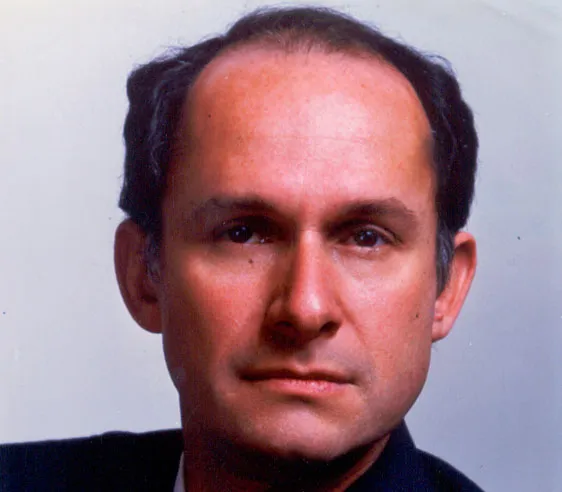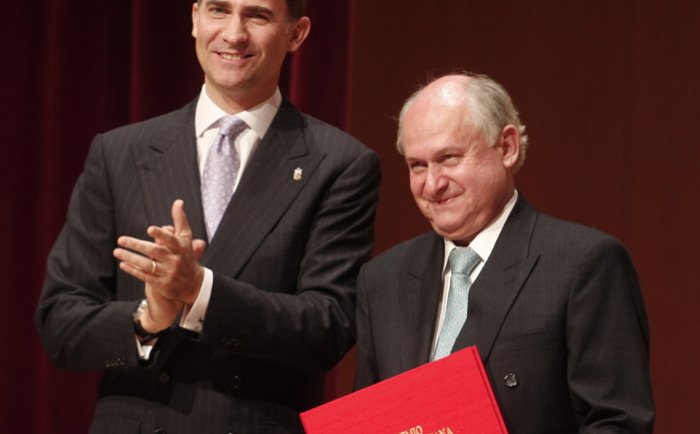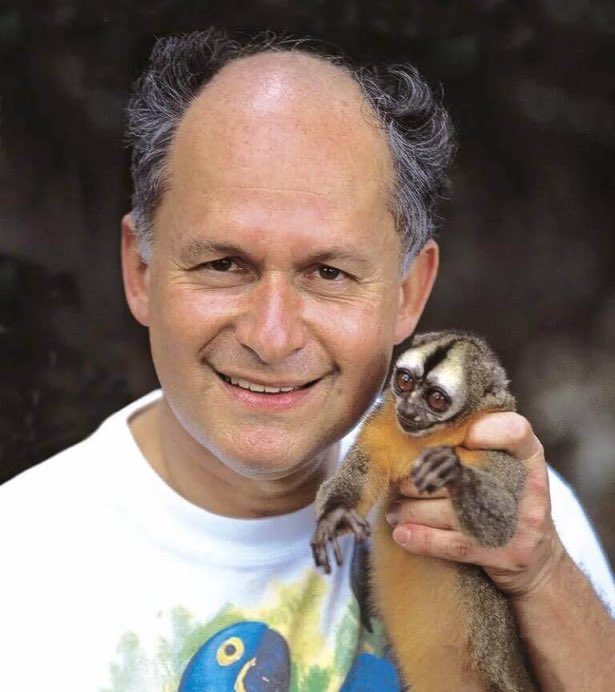The celebrated Colombian scientist Manuel Elkin Patarroyo passed away on January 9 in the country’s capital city, Bogotá, the National University confirmed.
The scientist, who held degrees in medicine from Colombia’s National University, and Immunology and Virology from Yale University, was 78 years old.
In conversation with Colombian newspaper Semana, Patarroyo’s son explained that his father’s cause of death was cardiac arrest, although he had been experiencing health struggles in the days leading up to his death.
 Image Source: Fundación Princesa de Asturias
Image Source: Fundación Princesa de AsturiasPatarroyo’s work included discovering the first synthetic vaccine against malaria in 1987, which he donated to the World Health Organization (WHO), in addition to founding the Immunology Institute of Colombia and serving as associate professor at both Rockefeller University and the University of Stockholm.
For his work, the scientist was honored in 1992 with the Spanish Prince of Asturias Award in Scientific and Technical Investigation, which recognizes people and institutions committed to social and cultural progress, as per El País. In 2010 he was also awarded the Sabino Arana Award, for individuals who have demonstrated outstanding commitment to social service. Other achievements include the Edinburgh Medal, the Koch Prize, and nominations to the Nobel Prize for medicine.
“Through his work, [Patarroyo] demonstrated originality, rigor, and perseverance. This has become an example to other processes of vaccine creation in the face of different epidemics that have threatened the lives of many communities,” the Princess of Asturias foundation highlighted in their eulogy to the late scientist.
 King Felipe VI of Spain and Manuel Elkin Patarroyo
King Felipe VI of Spain and Manuel Elkin PatarroyoImage Source: Ayuntamiento de Sesma.
“Today, a great scientist has left us: Manuel Elkin Patarroyo. Beyond the world’s first synthetic vaccine, his legacy is the creation of a generation of researchers to whom he instilled the value of improving our country through knowledge,” Lucy Gabriela Delgado, Dean of the Science Faculty in Bogotá’s National University and one of Patarroyo’s students, stated.
At the time of his death, Patarroyo remained in his position as professor at Colombia’s National University.
A controversial vaccine
Born in the rural town of Atacó in Colombia’s central Tolima state, Patarroyo and his family fled to the neighboring Cundinamarca state when he was a child, a result of Colombia’s armed conflict.
According to El País, Patarroyo studied medicine at the National University, after which he became a professor and completed a master’s program in virology from Yale University.
The scientist authored the first modern synthetic vaccine against malaria in 1986, a tropical disease that causes an approximated 597,000 deaths in 83 countries per year, according to the WHO. Known as SPF66, Patarroyo’s vaccine works through synthetic peptides containing antigens from the malaria disease.
 Image Source: David Calle via X.
Image Source: David Calle via X. SPF66 was first used in Colombian field trials on military volunteers in 1988, and it covers the deadliest strain of malaria, Plasmodium falciparum. And although it was the first malaria vaccine to be extensively tested in endemic areas, the United States National Center for Biotechnology Information found that the vaccine was not effective in protecting African populations against the disease, and only moderately effective in protecting South Americans.
In fact, according to the Science Museum Group, the vaccine was only found to be 30% effective against the disease in South America. Regardless, it remains the most effective vaccine developed against malaria.
Beyond the vaccine’s effectiveness, Patarroyo and his team faced harsh criticism because of their employment of monkeys from the Colombian Amazon for medical tests. As per the People for the Ethical Treatment of Animals (PETA), the scientist’s facilities were under investigation for animal cruelty.
Patarroyo argued that his practices were legal until his death.

 By Latin America Reports | Created at 2025-01-14 09:46:34 | Updated at 2025-01-14 22:54:40
13 hours ago
By Latin America Reports | Created at 2025-01-14 09:46:34 | Updated at 2025-01-14 22:54:40
13 hours ago








